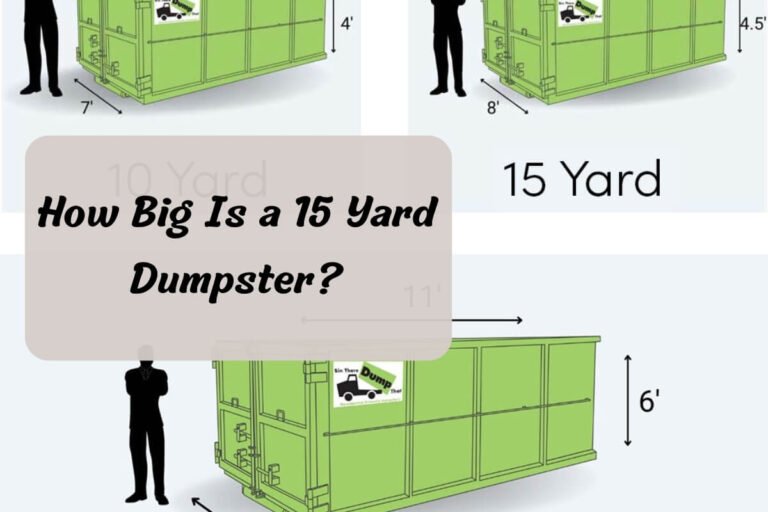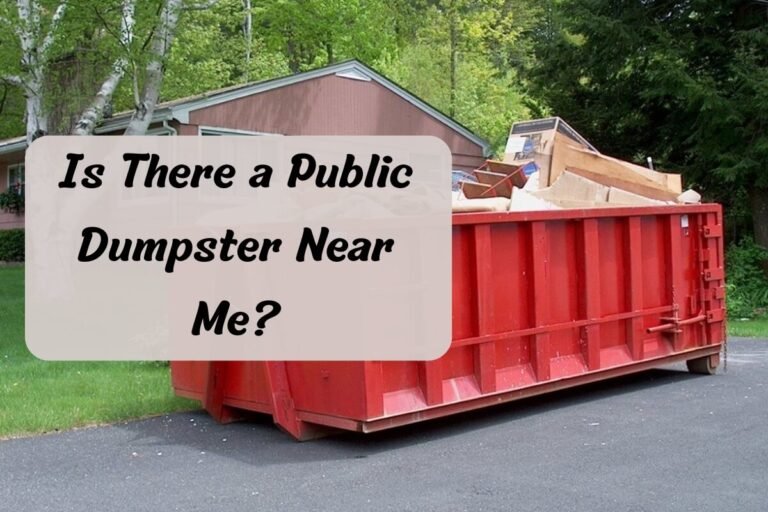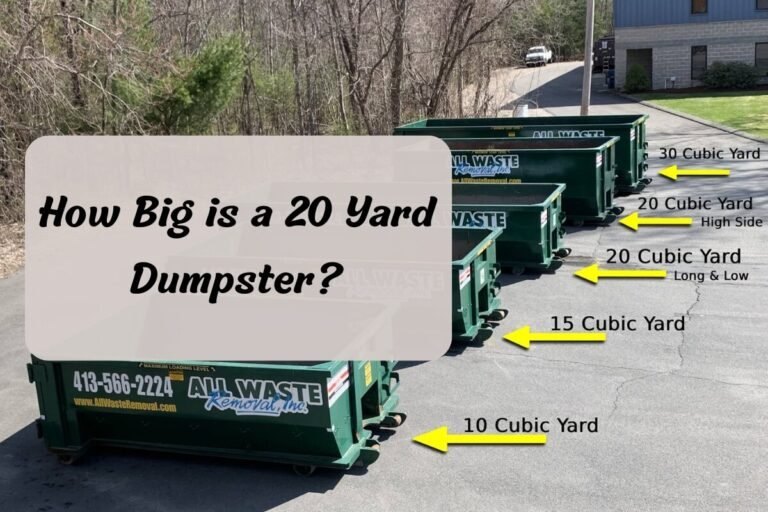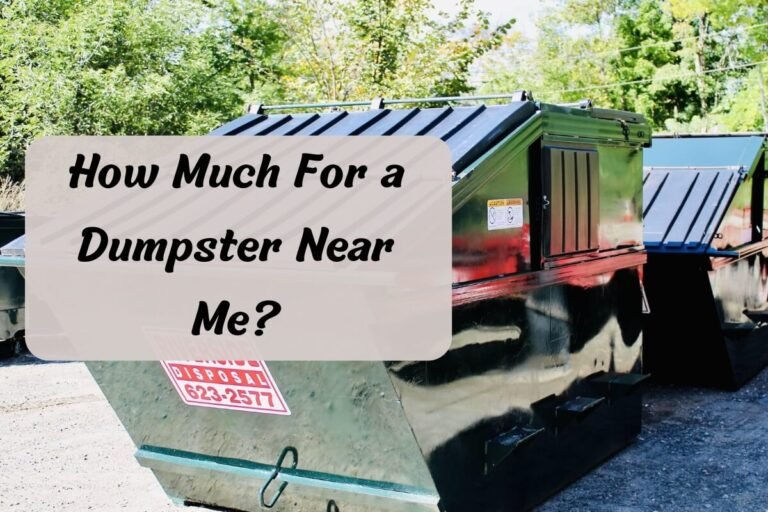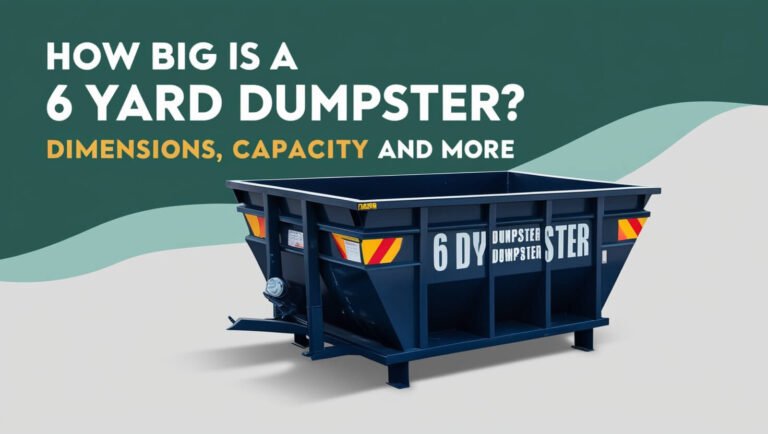How Much is a Dumpster Rental? Get All the Details Here
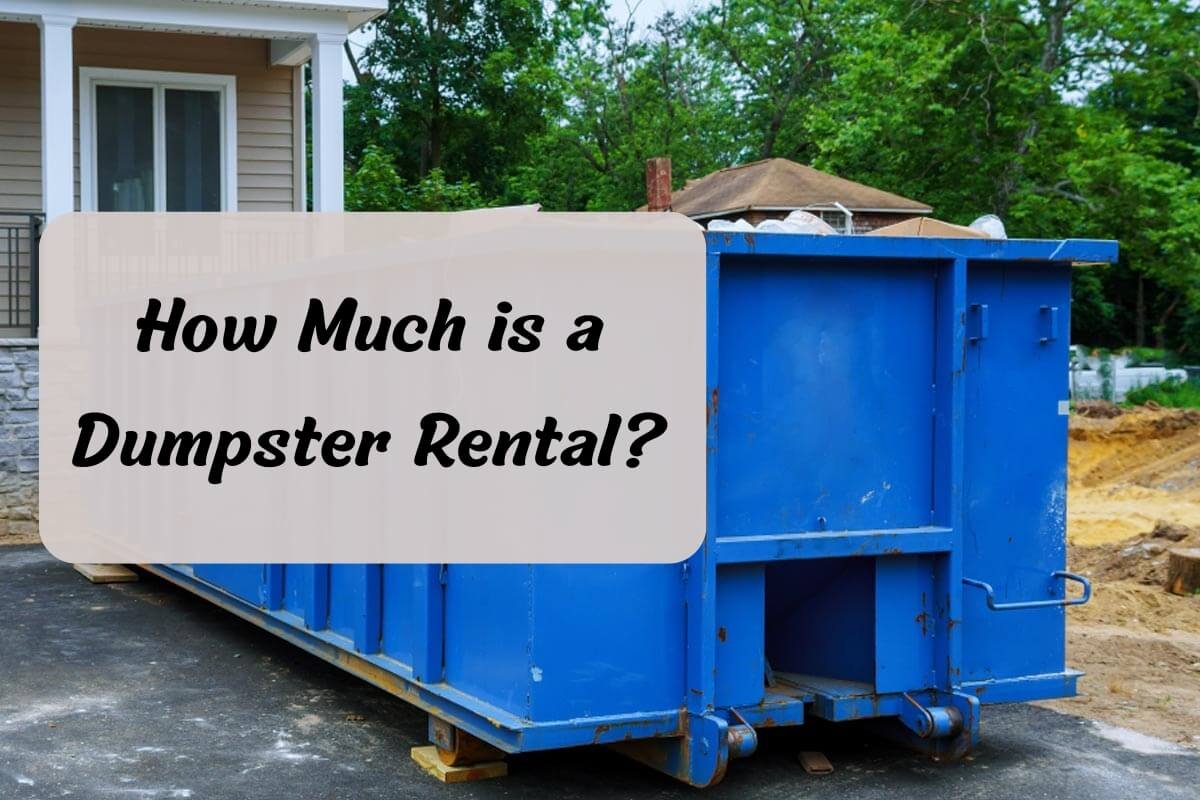
Planning a home project like renovation or clean-out? You might wonder, ‘How much does a dumpster rental cost?’ The price varies based on several factors. This guide explains what affects dumpster rental costs so you can find the best deal.
Factors That Affect Dumpster Rental Costs
The cost of renting a dumpster is influenced by several factors, including:
Location: Where you live can significantly impact the cost of a dumpster rental. Fuel costs, disposal fees, and regional regulations can vary greatly from one area to another.
Dumpster Size: Dumpsters come in various sizes, ranging from 10 yards to 40 yards. The larger the dumpster, the higher the rental cost, as you’ll be disposing of more debris.
Type of Debris/Waste: The type of waste you’re disposing of can also affect the cost. Some materials, such as construction debris, may be more expensive to dispose of than household trash.
Rental Duration: Most dumpster rentals are priced on a weekly basis, but you can also rent them for a day or a month. The longer you need the dumpster, the higher the cost.
Additional Fees: Some companies may charge additional fees, such as permit fees, overage charges (if you exceed the weight limit), or hazardous waste disposal fees.
Average Dumpster Rental Prices
To give you an idea of what you might expect to pay, here are some average dumpster rental prices:
Prices by Dumpster Size
- 10-yard dumpster: $224-$531 per week (average $391.02)
- 15-yard dumpster: $253-$607 per week (average $417.69)
- 20-yard dumpster: $268-$657 per week (average $461.37)
- 30-yard dumpster: $360 – $809 per week (average $562.42)
- 40-yard dumpster: $396 – $928 per week (average $635.57)
Prices by Rental Period
- Daily: $40 – $100
- Weekly: $350 – $550 (most common)
- Monthly: $500 – $1,200
Prices by Location
Dumpster rental prices can vary significantly depending on where you live. For example, a 20-yard dumpster rental can cost around $330 – $400 per week in Austin, TX, but $560 – $675 per week in New York City.
Choosing the Right Dumpster Size
Selecting the appropriate dumpster size is crucial to ensure you have enough space for your debris while avoiding overpaying for a larger dumpster than you need. Here are some tips for choosing the right size:
Consider the Project Type: Are you tackling a full home clean-out, a bathroom renovation, or a roofing project? The type of project can help determine the amount of debris you’ll generate.
Estimate the Debris Volume: Try to estimate the volume of debris you’ll be disposing of. A 10-yard dumpster can typically hold about 3 pickup truck loads, while a 40-yard dumpster can hold up to 12-16 pickup truck loads.
Use a Dumpster Size Calculator: Many dumpster rental companies offer online calculators or guides to help you determine the appropriate dumpster size based on your project and debris volume.
Additional Costs to Consider
While the rental cost is the primary expense, there are several additional costs to keep in mind:
Permit Fees: Depending on your location, you may need to obtain a permit to have a dumpster on your property or on the street. Permit fees can range from $10 to $100.
Overage Charges: Most dumpster rentals come with a weight limit, typically ranging from 1 to 6 tons, depending on the size. If you exceed this limit, you may be charged an overage fee of $50 to $250 per ton.
Hazardous Waste Disposal Fees: If you need to dispose of hazardous waste, such as asbestos, chemicals, or batteries, you may be charged an additional fee.
Delivery and Pickup Fees: Some companies may charge separate fees for delivering and picking up the dumpster, especially if your location is difficult to access.
Tips for Saving Money on Dumpster Rentals
Dumpster rentals can be costly. Here are some tips to help you save money:
Shop Around and Compare Prices: Don’t settle for the first quote you receive. Contact multiple companies and compare their prices and services.
Rent from Local Companies: Local dumpster rental companies often offer more competitive prices than national chains.
Rent for Longer Periods: If you need the dumpster for an extended period, consider renting it for a month rather than weekly, as monthly rates are usually more cost-effective.
Accurately Estimate Debris Volume and Weight: Overestimating the amount of debris can lead to renting a larger (and more expensive) dumpster than you need. Accurately estimate the volume and weight to avoid overpaying.
Donate or Sell Before Disposing: Before loading the dumpster, consider donating or selling items that are still in good condition. This can reduce the amount of debris you need to dispose of and potentially offset some of the rental costs.
Frequently Asked Questions
What items are not allowed in a dumpster rental?
Most dumpster rental companies have a list of prohibited items, which can include hazardous materials (e.g., asbestos, chemicals, batteries), flammable liquids, and certain types of electronics or appliances. It’s essential to check with the rental company about their specific restrictions.
Can I keep the dumpster longer than the initial rental period?
Yes, most companies allow you to extend the rental period, but they may charge an additional fee for each extra day or week.
Do I need a permit to rent a dumpster?
The permit requirements can vary depending on your location and the specific regulations. In some areas, you may need a permit if the dumpster is placed on public property or the street. Check with your local authorities or the rental company for more information.
How do I determine the weight of my debris?
Most rental companies provide weight estimates based on the type of debris you’ll be disposing of. For example, a cubic yard of construction debris can weigh around 500-700 pounds, while a cubic yard of household trash may weigh 200-300 pounds.
Conclusion
Renting a dumpster can be a convenient and cost-effective solution for managing debris from home renovations, clean-outs, or construction projects. However, understanding the factors that affect dumpster rental costs is crucial to ensure you get the best deal. By considering the location, dumpster size, type of debris, rental duration, and additional fees, you can make an informed decision and budget accordingly. Remember to shop around, accurately estimate your debris volume and weight, and explore cost-saving strategies like renting from local companies or donating/selling items before disposing of them. With this comprehensive guide on “how much is a dumpster rental,” you’re now equipped with the knowledge to navigate the dumpster rental process efficiently and cost-effectively.


